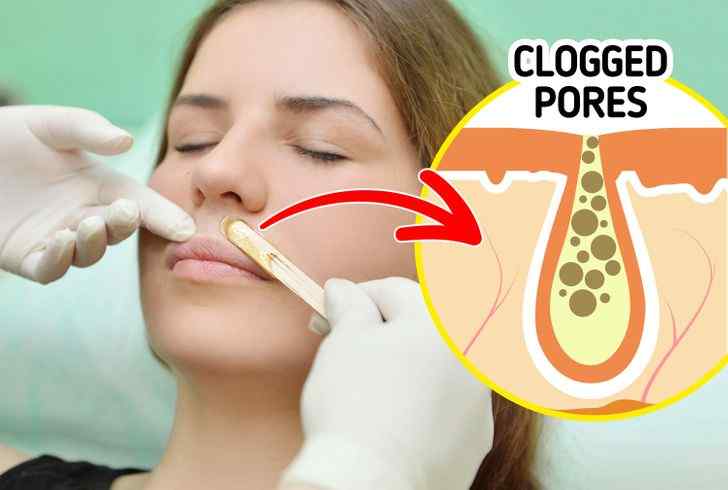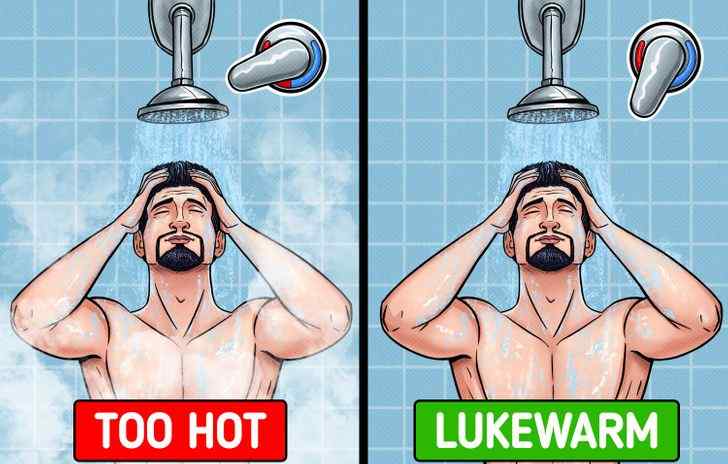
Let’s face it, we all wish our skin would age gracefully like excellent wine. While our appearance is partly genetic, it’s fascinating to note that 90% of how our skin ages are entirely dependent on us and our regular skincare regimens.
1. Allowing your hair products to come into contact with your skin is a big no-no.

Many hair products, such as shampoo, conditioner, and other hair styling chemicals, clog your pores and create breakouts on your skin, such as acne, pimples, and other irritations on your scalp and face. This occurs because many hair products contain sulfates, which are known to block your skin’s pores.
Switching to non-sulfate hair products is a good way to avoid this. Additionally, the next time you use hair products, wear a sweatband on your forehead and cover your face with a clean towel for added protection.
2. Using an excessive amount of skincare products
Switching between numerous skincare products can be difficult for your skin since new preservatives and ingredients can agitate your skin and cause acne breakouts. This includes acne skincare products, which, if used excessively, might harm your skin.
Instead of experimenting with a variety of skincare products, focus on one or two and give them time to work their magic on your skin.
3. Using facial hair removal products incorrectly

Acne breakouts on the face are frequently caused by improper facial hair removal with comedogenic treatments that have pore-clogging properties. As a result, you’re essentially swapping one difficulty for another.
Avoid products with the most common pore-clogging components (such as coconut oil, palm oil, and wheat germ), stick to non-toxic cosmetics, and check for non-comedogenic labeling to ensure you’re properly cleaning out facial hair and preventing future irritations on your face.
4. Visiting a new location
When you go to a new location, your skin is exposed to a new environment that may be damaging to it. Factors such as the sun’s rays, heat, cold, and humidity can cause your skin to become suddenly irritated, resulting in acne breakouts.
It’s advisable to adapt to the new settings you’re entering to avoid any bad impacts that a change in environment may have on your skin. Use sunscreen, particularly with zinc oxide, to avoid prolonged skin exposure. Also, if you’re going to be outside in the cold, moisturize your skin to minimize dehydration.
5. Toxins in your makeup remover

The harmful components in your makeup remover are another frequent product that can clog pores and cause acne breakouts. While the cosmetic products themselves are problematic, the skincare process needed to remove the makeup also irritates the skin.
The usage of non-comedogenic products would be the solution to this problem once more. Also, after a long day, we recommend properly washing your face after removing your makeup to effectively remove any buildup of makeup, oil, and debris.
6. Consumption of processed foods
Acne can be triggered by high-carbohydrate foods like cakes or burgers. Food heavy in carbohydrates has a high glycemic index, which means it impacts blood sugar levels immediately, which can cause skin irritation.
To avoid the harmful effects of a high-carb diet on your skin, limit your snacking and focus on high-protein foods with more healthful ingredients, as well as lots of fruits and vegetables.
7. Lie down on your stomach to sleep

Your pillow absorbs everything, and when you sleep, your face is forced against all of the materials on your pillow, resulting in acne outbreaks and clogging of your pores.
We frequently drool when sleeping, especially if we sleep on one side of our faces, clogging our pores and allowing negative materials to enter our faces, causing acne breakouts and skin irritation. Try sleeping on your back to avoid causing this damage to your skin.
8. Scrubbing your face excessively with a washcloth
When you scrub your face too hard with a washcloth, you expose your skin to excessive exfoliation, which can harm your complexion.
Wash your face with a washcloth three to four times a week to avoid causing skin irritation, and limit your exposure to unneeded exfoliation.
9. Using water that is either too hot or too cold when washing

When it comes to your skin’s health, the temperature of the water is crucial. Coldwater is ineffective in removing all of the buildups on your skin, whilst hot water is known to irritate and dry it off.
The optimal water temperature for effective skin cleansing is lukewarm because it dissolves buildup on your skin while keeping healthy oils. To find the “sweet spot,” use water that is between 98 and 108 degrees Fahrenheit (36.5 and 40.5 degrees Celsius).
10. Leaving your face unwashed in the morning
A long night’s sleep results in the accumulation of oil, filth, and bacteria. Our skin also undergoes a healing process when we sleep, which results in the production of oil and pollutants.
If that buildup isn’t adequately wiped away in the morning, it can prematurely age our faces, add to more wrinkles, and cause skincare products like sunscreen to malfunction. As a result, washing your face first thing in the morning is recommended to freshen up, cleanse your pores, and start the day with clearer skin.
Do you know of any other common skin-harming habits? Please share them in the comments section.
